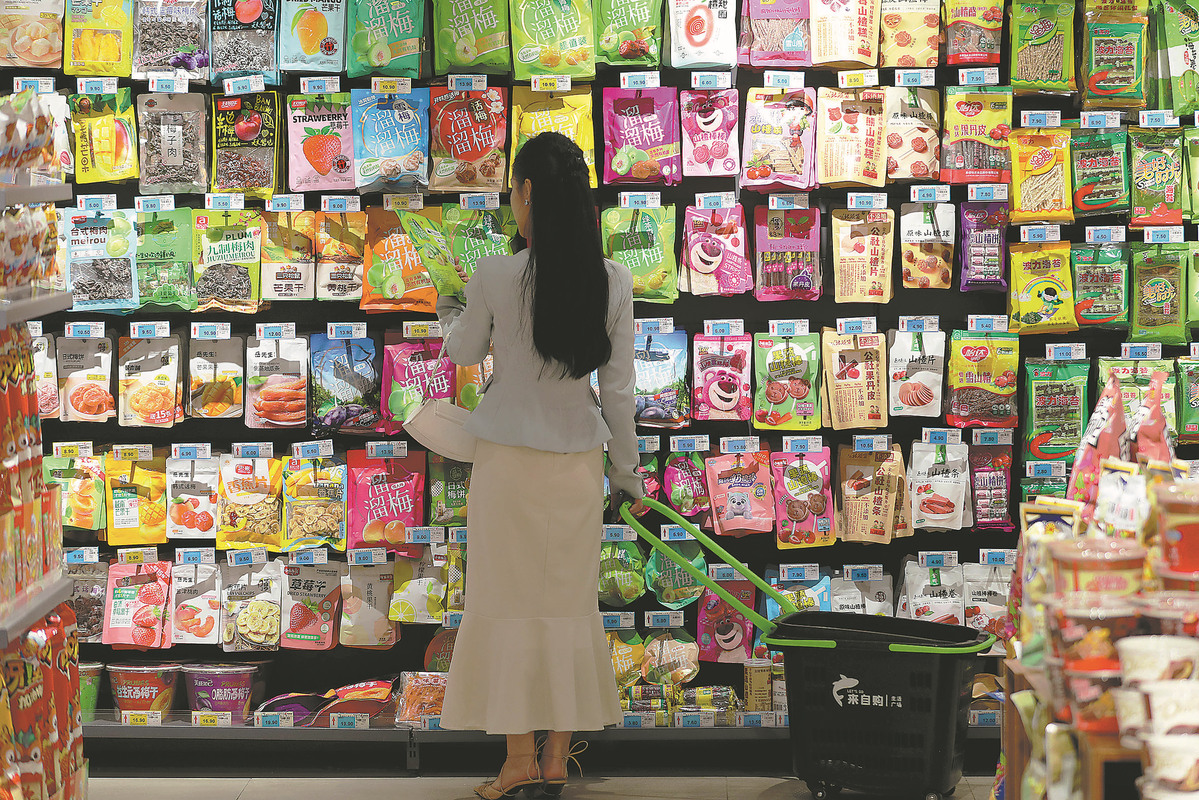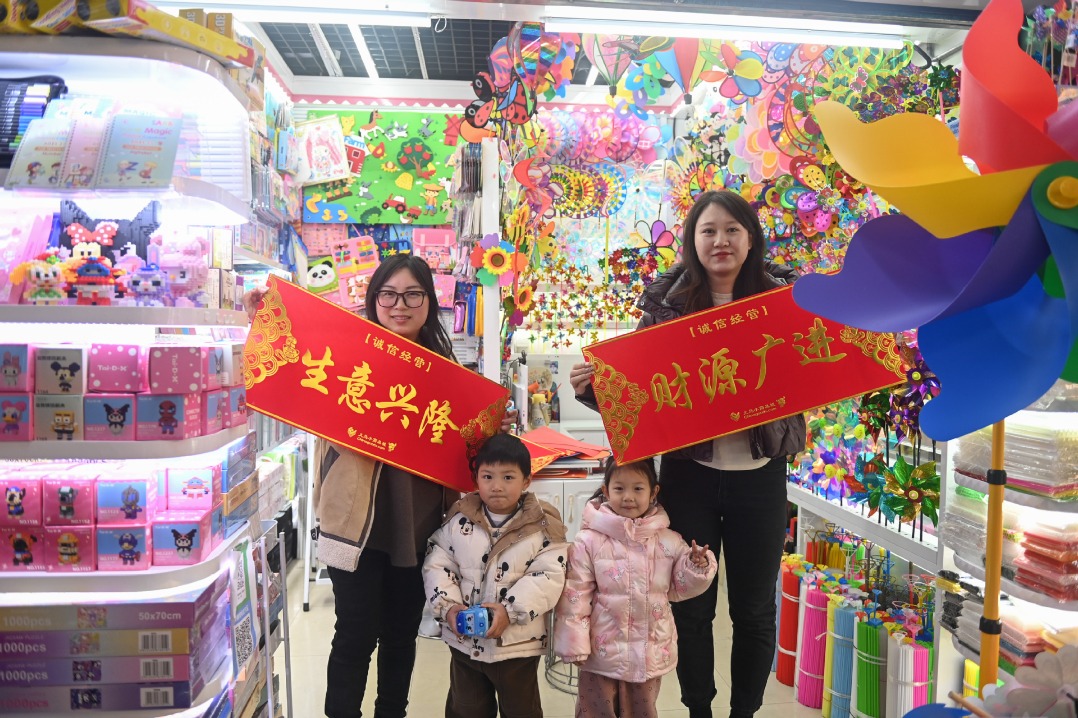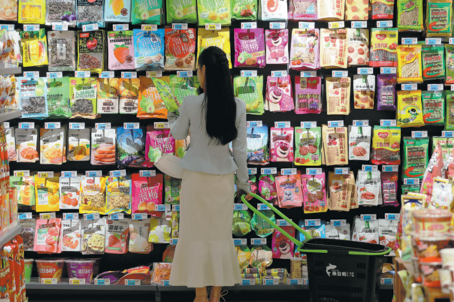China's consumption upgrade presenting new opportunities


BEIJING — Whether it's purchasing premium goods at large supermarkets, selecting the latest smart home appliances at electronics stores, or indulging in cross-border travel, China's consumer market is demonstrating recovery and ongoing upgrades.
Sustaining the momentum, besides a raft of measures announced in January to expand the scope of its consumer goods trade-in program, the Chinese government has emphasized stronger and more targeted steps to boost consumption, in a bid to strengthen the fundamental role of consumption in driving economic development.
In their 2025 economic outlook, several global financial institutions have highlighted China's high-quality development, noting the gradual shift toward a more consumer-driven and service-oriented economy. Citigroup remarked that "China had a solid start to the Year of the Snake".
Going through profound transformation from quantitative growth to qualitative progress, China's super-sized consumption market is offering enormous cooperation opportunities for countries around the world.
As quality has gradually surpassed price as the key consideration for many shoppers in China, the consumer mentality shift is driving the rise of quality-focused retail giants like Sam's Club, Walmart's membership-only store chain in China.
Having first entered the Chinese mainland market in 1996 with its first stop in Shenzhen in South China's Guangdong province, this retailer has since opened 53 stores in more than 20 cities in China, covering first and second-tier cities, while planning to further accelerate the layout.
Walmart's results report for its third fiscal quarter in 2024 revealed that Sam's Club saw net sales via e-commerce in China rising by 25 percent, while membership income rose by 22 percent — thereby maintaining double-digit growth for multiple consecutive quarters.
As of November, the retailer's net sales in China totaled $15.2 billion, with membership rising to 8.6 million and online sales accounting for nearly 50 percent of total revenue. Its continued success is attributed to its blend of high-quality, cost-effective products and an online-offline integration model that is resonating with Chinese consumers.
During holidays such as Spring Festival in particular, consumers showed a preference for premium goods, with many choosing imported fruits and high-end gift boxes from Sam's Club.
"I spent more than double what I did in previous years, but it was worth it. The products are not only what I love, but also trustworthy, making them perfect for gifts," a customer told Xinhua News Agency.
This shift in consumer attitudes is particularly evident among younger generations, who have ditched the traditional focus on quantity and low prices, but are more concerned with the value they get for their money and the overall shopping experience.
Amid continued efforts to embrace digital retail in China, Sam's Club has rolled out 500 front-end warehouses across 25 cities, offering services such as fast delivery within one hour, citywide delivery and even nationwide delivery.
The global retailer's success in China is also aided by its collaboration with local suppliers to enhance product quality and lower costs. Its osmanthus-flavored sweet rice wine mochi, made using premium raw materials from Central China's Hubei province and South China's Guangxi Zhuang autonomous region, and taro basque cheesecake which blends local Guangxi taro with New Zealand cream, have both proven hits with Chinese consumers.
In line with the demand for quality, Ferrero, the global chocolate giant, also reported impressive sales growth in China, particularly during Spring Festival. In its recent sales update, Ferrero highlighted double-digit growth in its China operations, with flagship products benefiting from rising consumer demand, especially through emerging sales channels such as Sam's Club and Costco, which have seen incredible growth over the past three years.
Ferrero's Chinese factory, based in Hangzhou in Zhejiang province since 2015, saw record production value and exports last year, supplying not only the domestic market, but also exporting to regions including other parts of Asia, Oceania and North America.
As China's consumer market grows, so does its demand for greener and more intelligent products. The country's policy-backed consumer goods trade-in program introduced in March 2024 has further stimulated consumer enthusiasm for home appliances and been instrumental in driving the growth of the industry.
Brands like Bosch and Siemens, both part of BSH Home Appliances, saw sales soar by more than 50 percent during the 2024 "Double 11" shopping festival, with dishwashers and French-door refrigerators experiencing growth rates of 160 percent and 113 percent, respectively, on e-commerce platform Suning.com.
Chinese consumers increasingly prioritize sustainability and smart technology, and energy-efficient and automated solutions, which is evident in their growing adoption of energy-saving air conditioners that reduce power consumption by 50 percent, smart refrigerators with food inventory management, and labor-saving appliances like dishwashers.
Yang Daiyou, director of the Modern Industry Research Institute at Guangzhou Academy of Social Sciences, emphasized that the integration of intelligent features and personalized customization will define the future development trajectory of the home appliance industry.
According to market watchers, these trends are also creating opportunities for foreign firms that cater to growing demand for green and smart products, and foreign-invested companies, by actively participating in the consumer goods trade-in program in 2024, have already secured significant benefits.
A close look at the trade-in program for the home appliances sector reveals that foreign brands accounted for over 16 percent of sales across eight major product categories, according to commerce ministry data, while third-party agencies reported that this policy had driven a year-on-year increase of about 31 percent in online sales and 49 percent in offline sales for foreign brands.
The transformation of China's dynamic consumption market from sheer volume to quality has been a key feature of its high-quality development, which is creating new opportunities for global companies to tap into China's increasingly sophisticated consumer base.
The integration of traditional cultural elements and modern consumer preferences is exemplified by companies like Starbucks which recently launched a special coffee bean blend to celebrate Chinese New Year, further tapping into the market by catering to local tastes while incorporating elements of Chinese tradition.
Xinhua




































